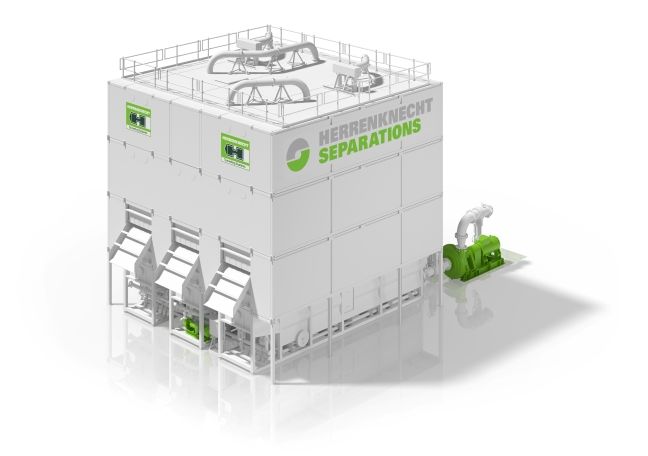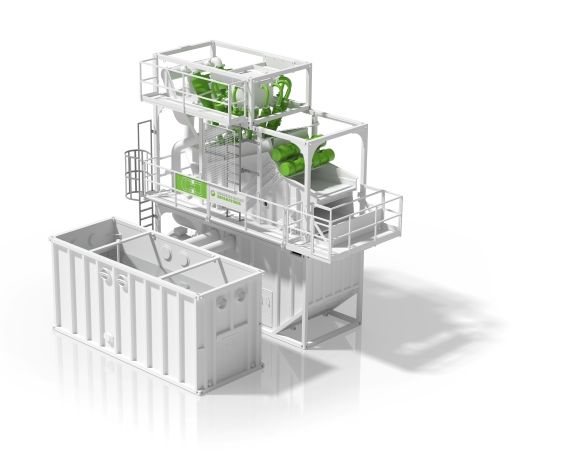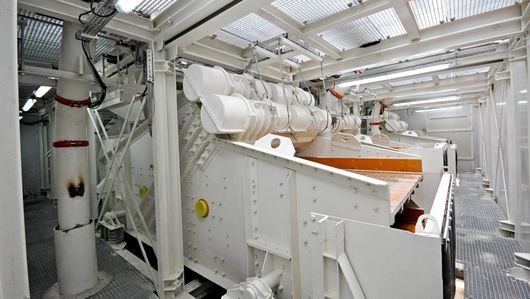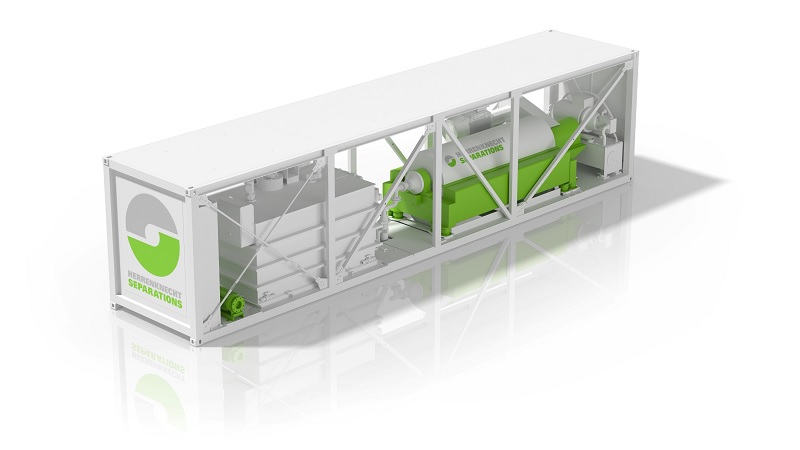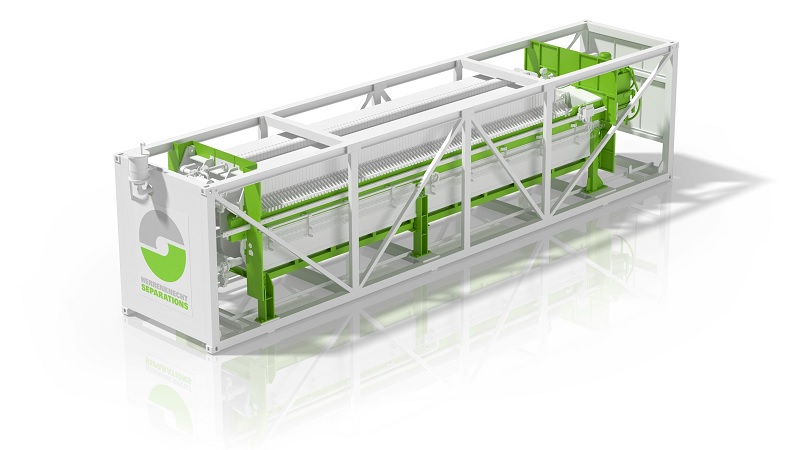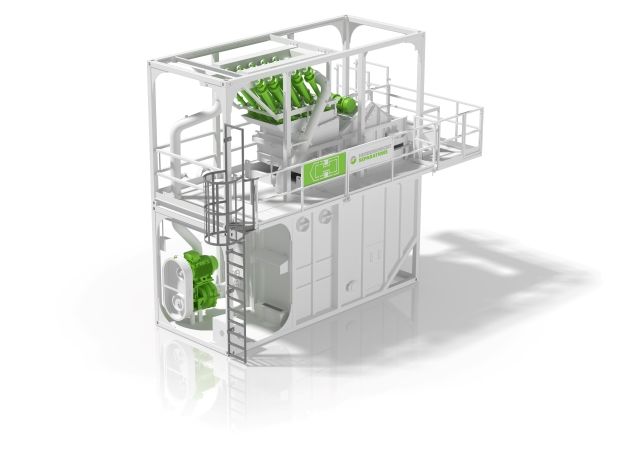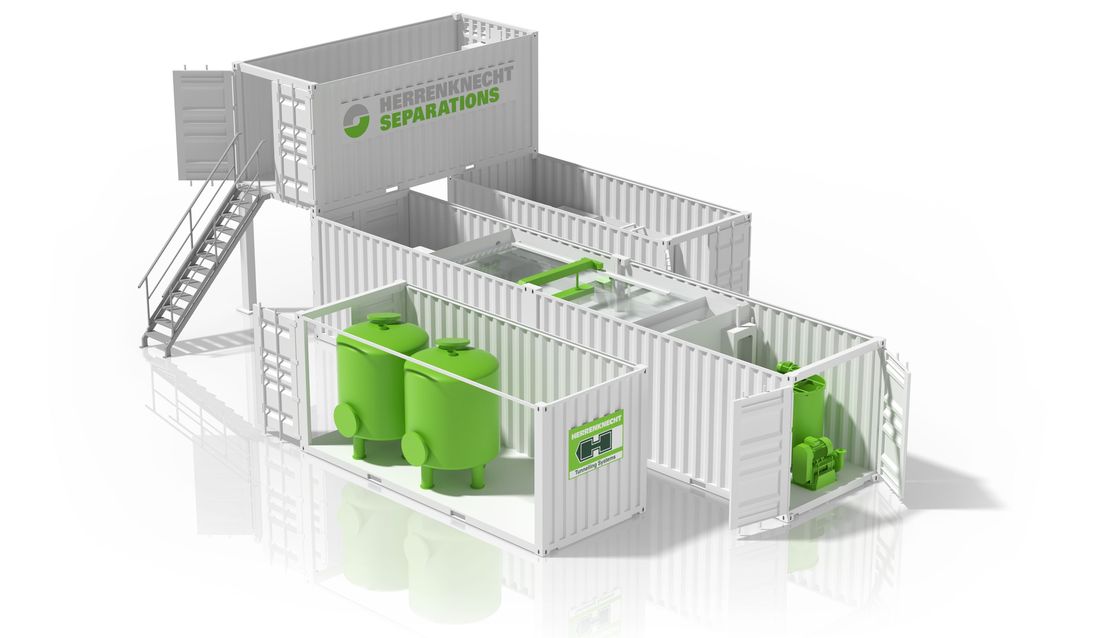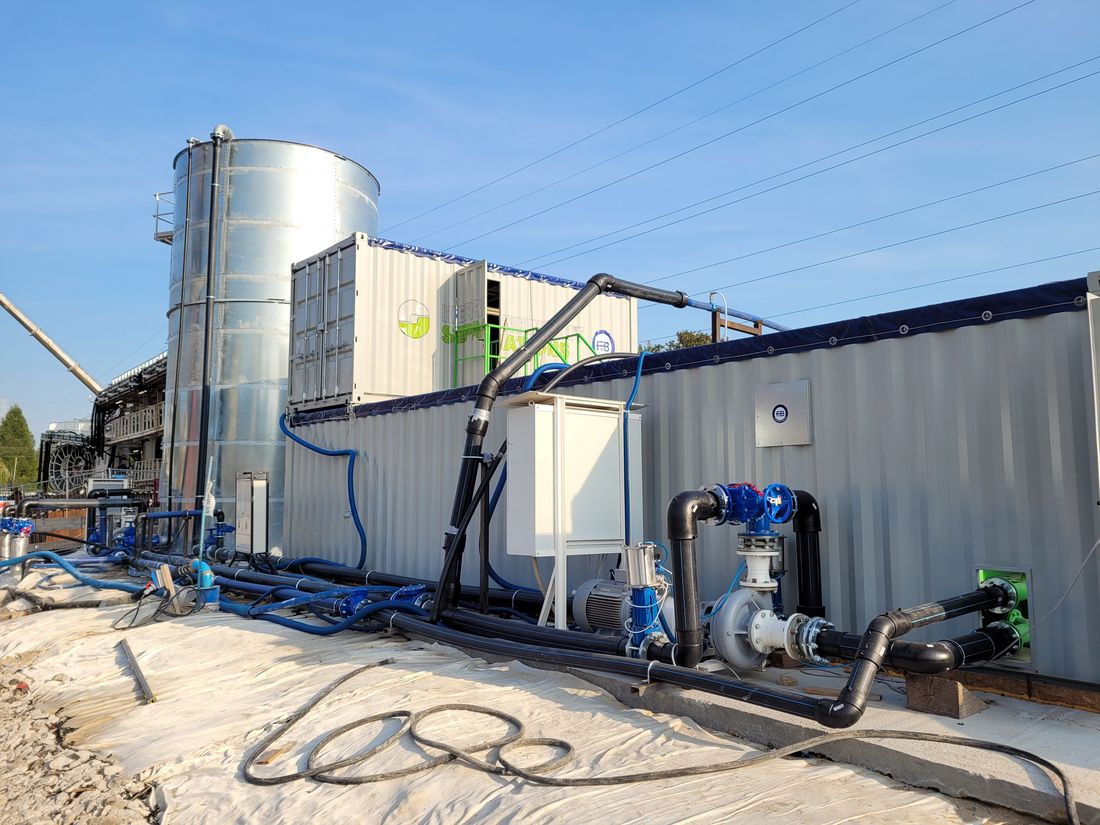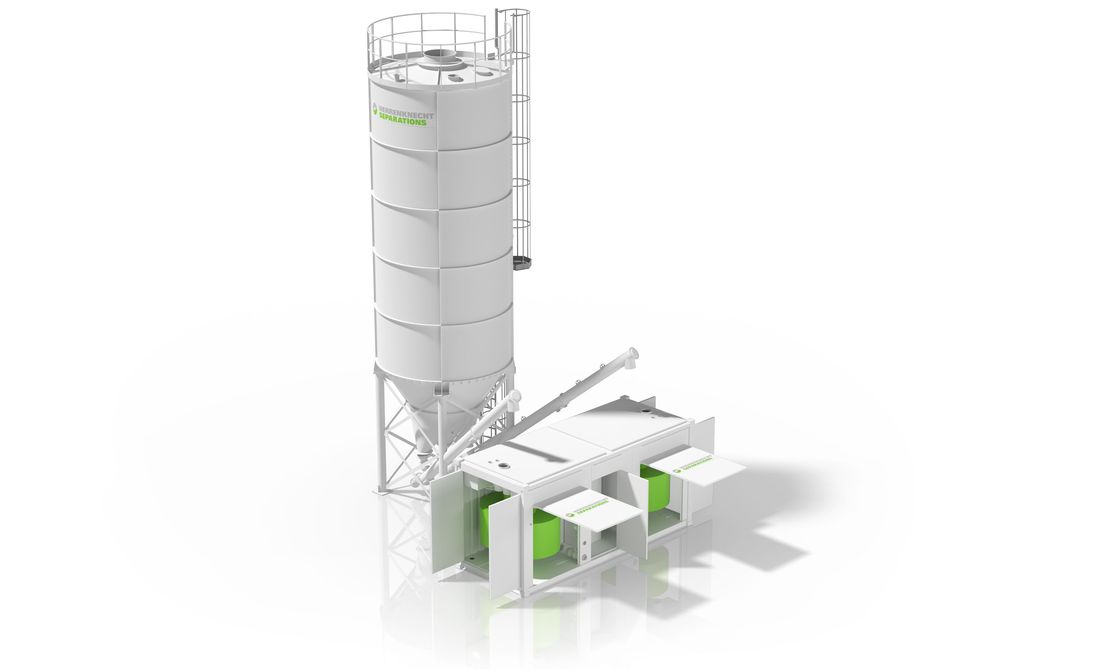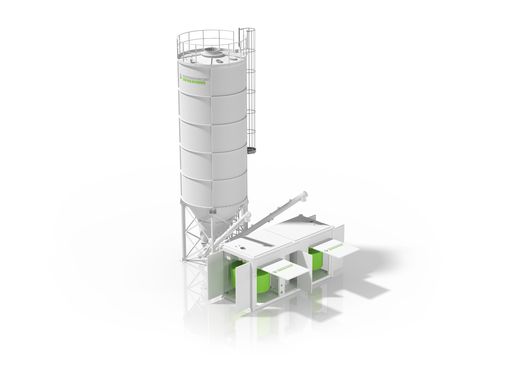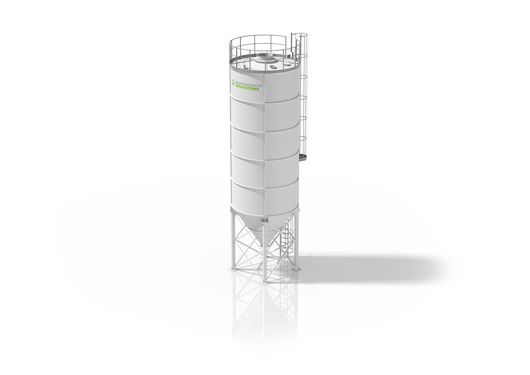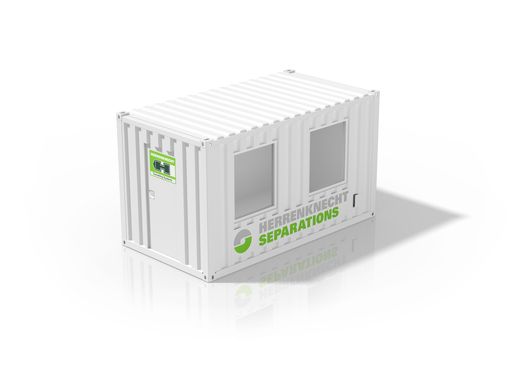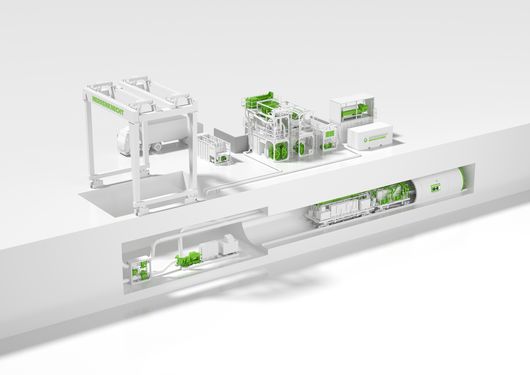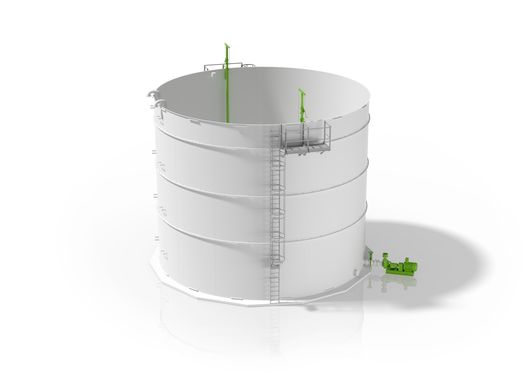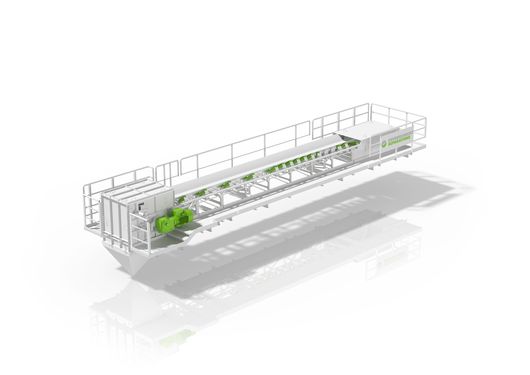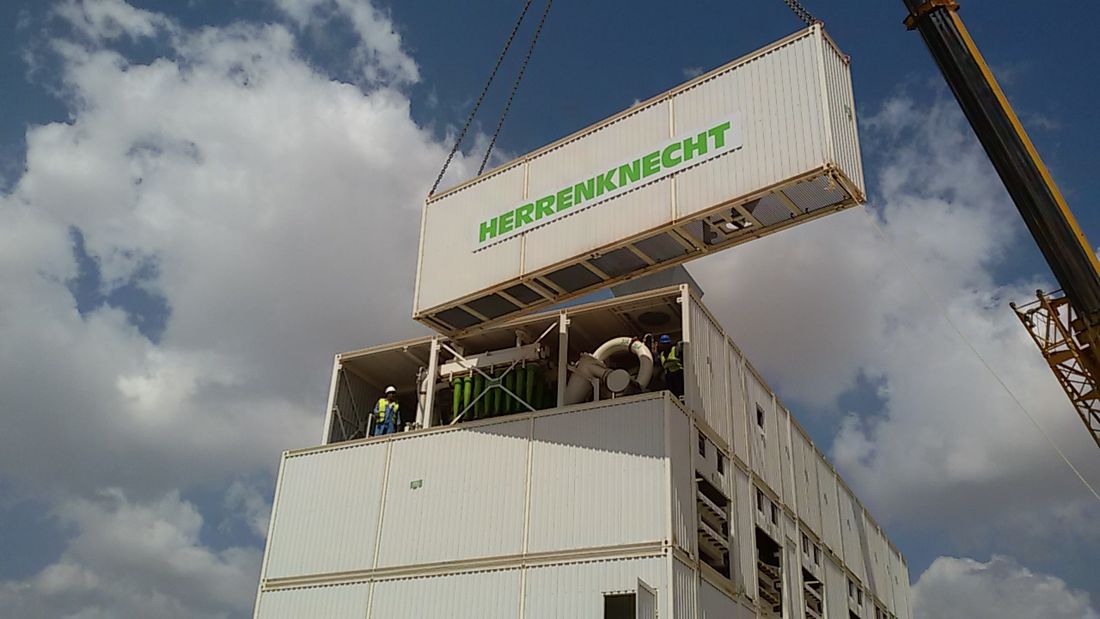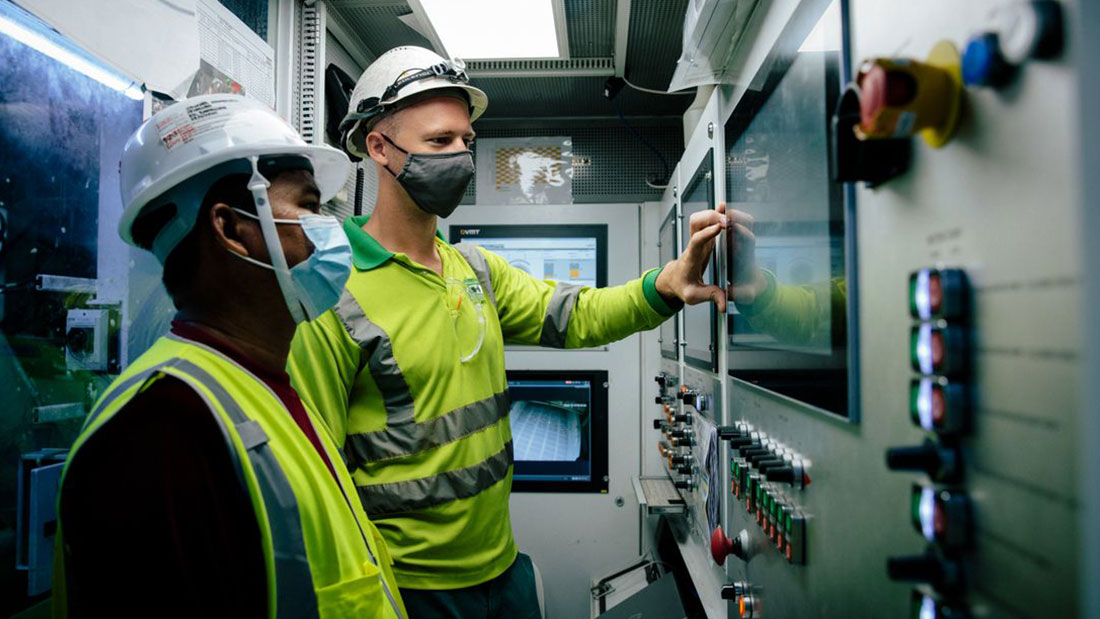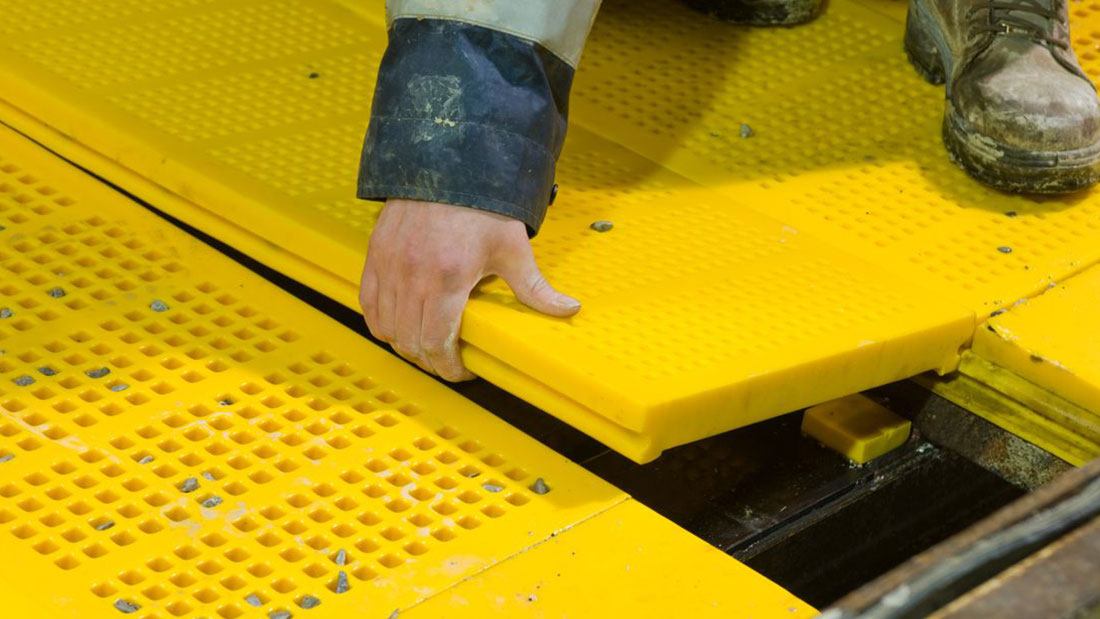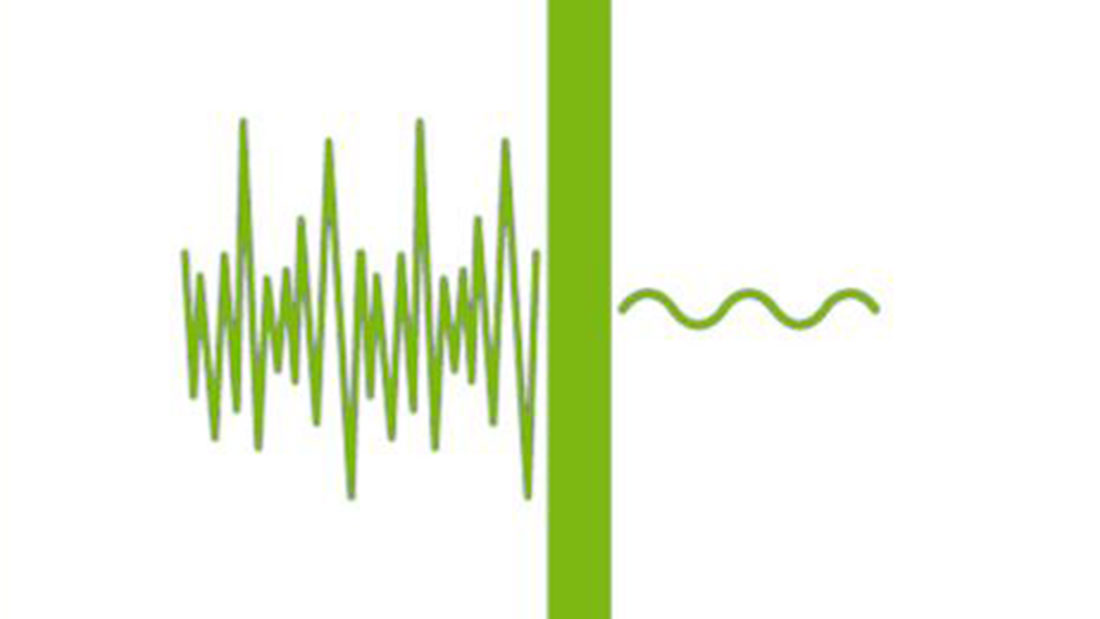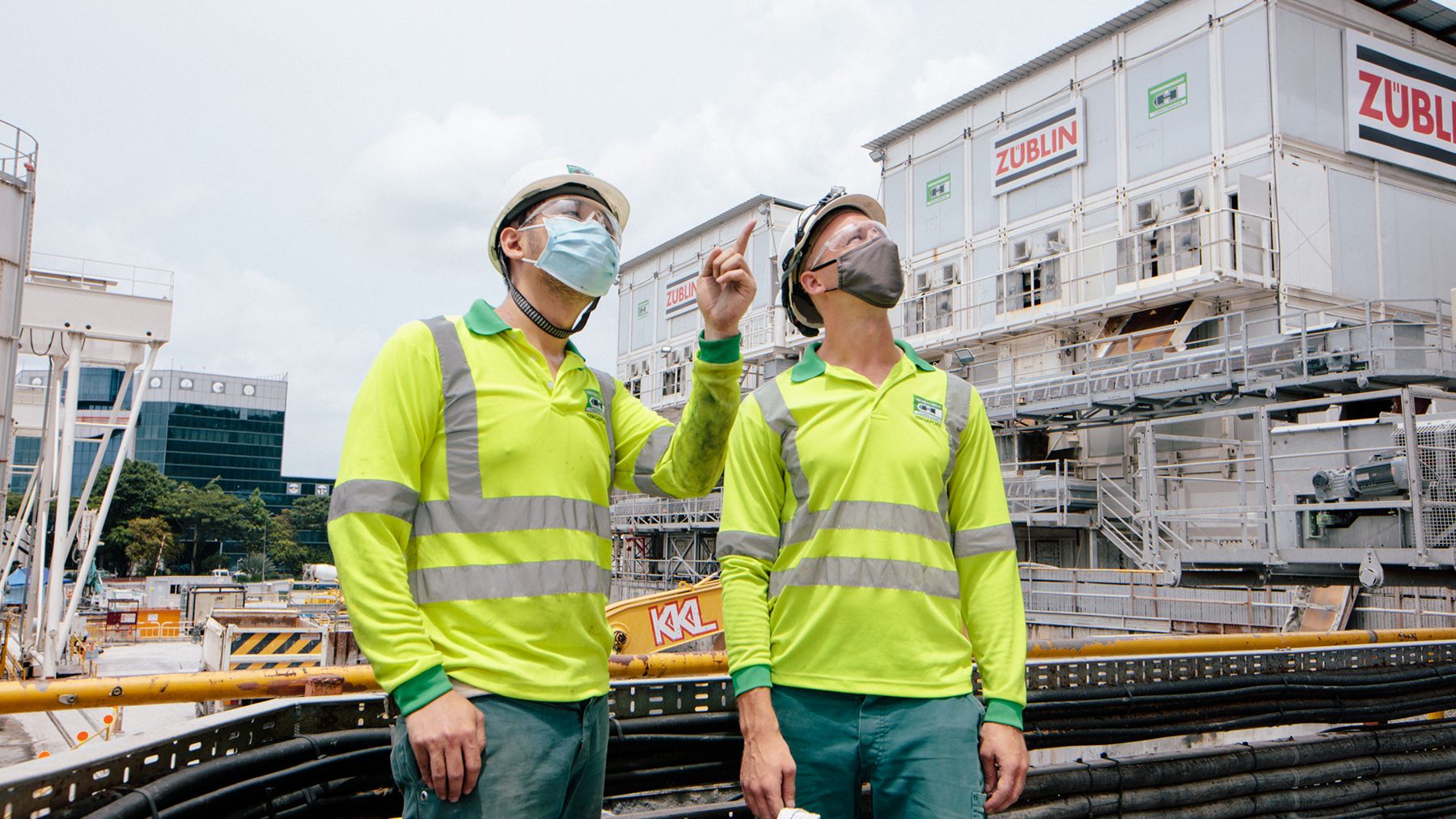For the separation of solid particles from suspensions, separation plants from Herrenknecht Separations use high-performance screening technologies and efficient hydrocyclones. Because the lower the water content in the discharge and the finer the separation stage, the lower your disposal and recycling costs will be.
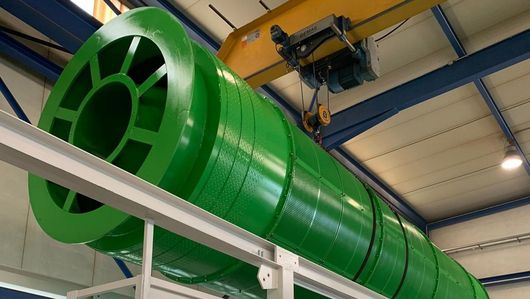
Screen drum machines
Screen drum machines are used for geologies with high percentages of silt or clay with a risk of sticking. A cleaning system can prevent the screen linings from clogging. With innovative replaceable linings and adaptable design - even for hard rock - Herrenknecht screen drums are ready for any challenge.
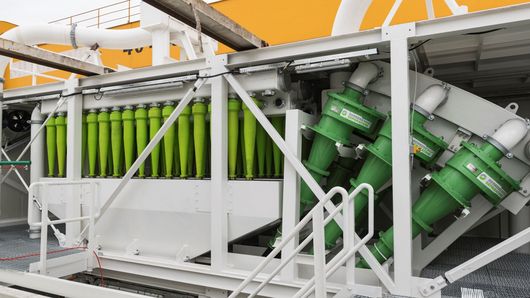
Hydrocyclones
Hydrocyclones are used in the separation plant for different separation sizes. Coarse cyclones and/or fine cyclones in combination with dewatering screening machines ensure efficient separation and dewatering of the solids and thus improve the quality of the suspension. The lowest possible cut point through optimum interaction of all components thus reduces operating costs.
In geological sections with high fines content, where screening machines and hydrocyclones reach their limits, the Density Regulation System, centrifuges and/or filter presses provide the necessary fine treatment. Even the smallest solid particles in the micro range can be removed from liquids and recycled. This minimizes disposal costs and ensures a consistently high quality of the treated medium.

Density Regulation System
The Density Regulation System works as a supplement to the separation system to increase both the service life of the suspension and the capacity of the fine treatment (centrifuge or filter press). The containerized systems are equipped with a cyclone stage, optional screening machine and a collecting tank installed in a bypass to the active tank of the separation plant. The viscous underflow of the cyclones is pumped to the dewatering screening machine or to the spent slurry tank, depending on the requirements, while the cleaned overflow can be fed back into the active circuit.
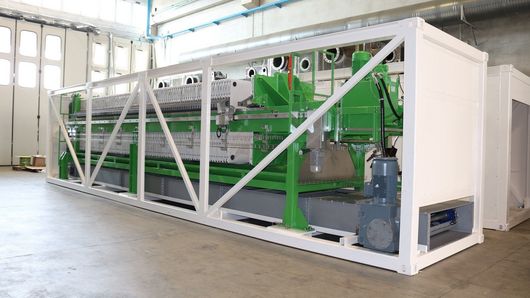
Filter press
Filter presses consist of several chamber plates arranged in a row and enclosed by a filter medium. Separation takes place by means of a solid filter cake, which forms under the effect of pressure with increasing cycle time. Due to their discontinuous operating principle, they can be used flexibly and allow maximum dewatering and filtrate quality for the best possible disposal conditions. The addition of flocculants and/or milk of lime is essential for a good result. Depending on location, geology and requirements, Herrenknecht filter presses can be used in combination or as an alternative to centrifuges. Thanks to their modular container design, they can be assembled and commissioned without extensive concreting work and require significantly less assembly time and space compared to other setups. This gives customers maximum efficiency and flexibility on jobsites.
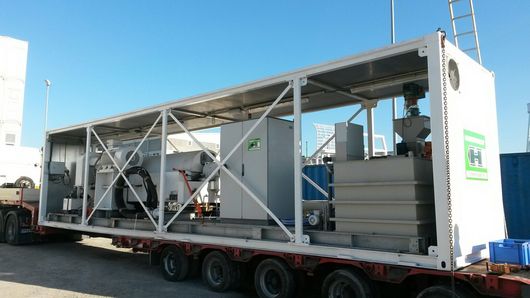
Centrifuge
Centrifuges consist of a drum body with an internal screw conveyor. Due to centrifugal forces that occur when the drum body rotates rapidly, solids with a higher density are deposited along the outer shell and can thus be separated off by the screw conveyor. The lower density liquid leaves the drum through internal weir discs. Owing to their continuous mode of operation, centrifuges achieve high throughput rates as well as good dewatering and centrate quality. By adding flocculants, the result can be further improved for lower disposal costs. Herrenknecht centrifuges are available in a variety of designs and capacities to provide a solution for almost any project challenge. Centrifuges can be used in combination or as an alternative to filter presses. The compact and modular container design allows for cost-effective transportation, quick assembly and disassembly with minimal space requirements.
Many types of wastewater occur on large jobsites, in tunnelling too: drainage water from the tunnel, filtration water from centrifuges and filter presses or washing water from cleaning. This wastewater is usually contaminated with solids, surfactants, heavy metals, residues of lubricants or has a significantly changed pH value. Herrenknecht water treatment plants use state-of-the-art technology so that the treated water can be reused, for example, for downstream processes. This not only reduces fresh water consumption, but also cuts costs by reducing disposal. Water that is no longer usable can be discharged into the local waste disposal system in compliance with existing local regulations. Herrenknecht water treatment systems can be individually configured to meet specific requirements and cope well even with limited space. Thanks to their modular structure, they can be optimally adjusted to local input conditions, the expected amount of water and the outgoing water quality. The practical container design enables cost-effective transport and quick assembly with commissioning within a very short time. Thanks to touch screen operation, full automation and possible integration into the Herrenknecht.CONNECTED data management system, the plant can be operated safely and without clutter.
Control room and laboratory
The control room contains all relevant control and operating elements to monitor the jobsite and the separation process. It is housed in a container and includes computers, monitors with touch screens and camera systems to control and monitor the equipment. In addition to digital monitoring of the process, manual control of the suspension quality is essential for safe tunnelling. For this purpose, a laboratory with the most important equipment for rheological measurements is used, which can be integrated in the control room.
Belt conveyor systems
Our belt conveyor systems ensure the removal and onward transport of separated solids from the slurry. Collecting, elevating and slewing belt conveyors or a combination of these offer an optimal solution for all landfill requirements and can be used flexibly depending on the jobsite layout and surroundings.
Noise-reduced design
With the help of noise-insulating external cladding of our modules by sandwich panels, the noise of the jobsite is reduced to a minimum. At the same time, with our optional Noise and Vibration Canceling System, we also offer an innovative solution for low frequencies and vibrations. This means even inner-city and sensitive projects can be realized, due to low impact on the surrounding environment.
Adaptation to max. performance parameters and geology
Comprehensive analyses of the prevailing geology and general project parameters are undertaken in the early planning stages. Their maximum values serve as a basis for the design and configuration of our plants, so that the separation process does not become a bottleneck in the project.



